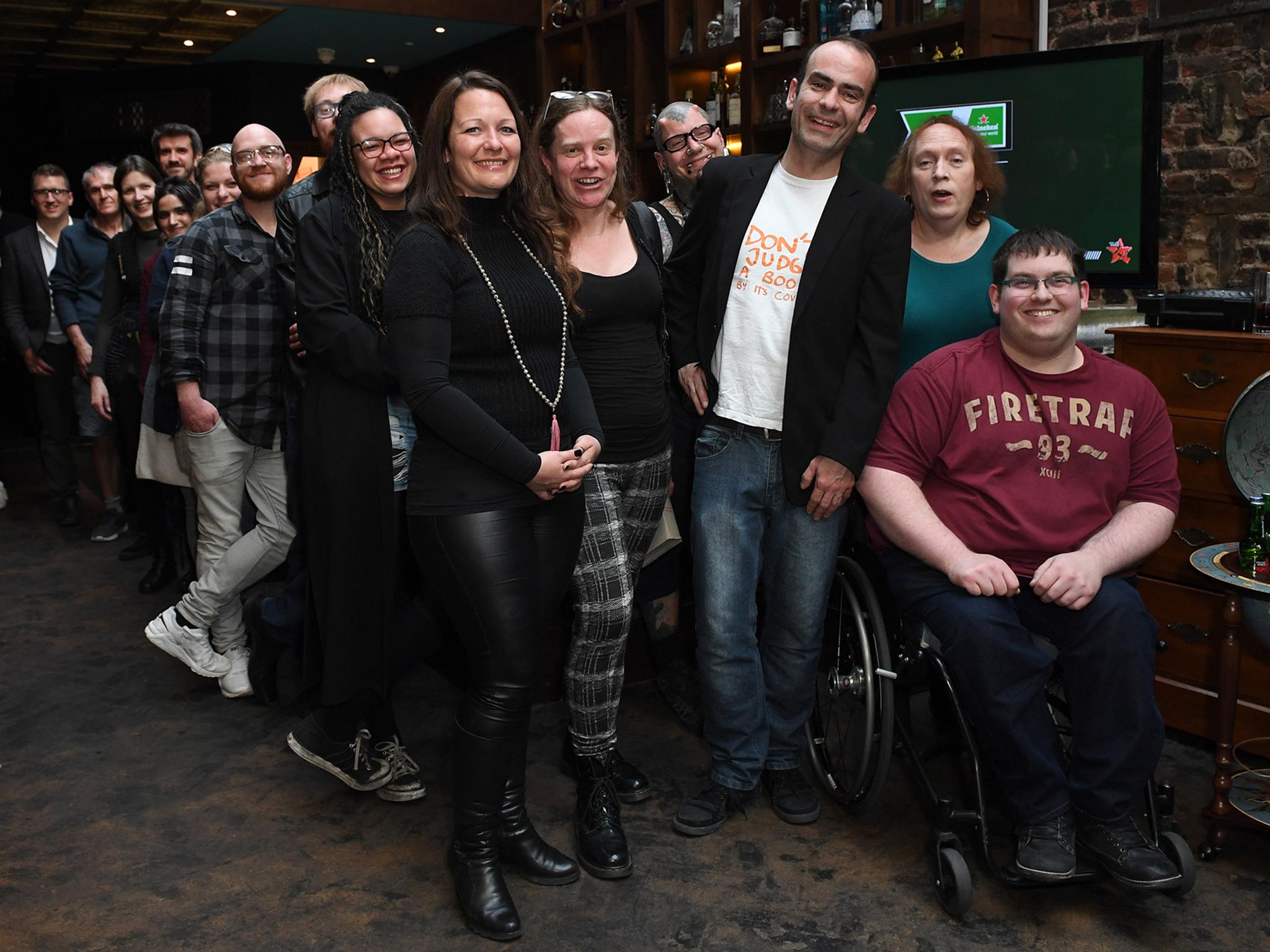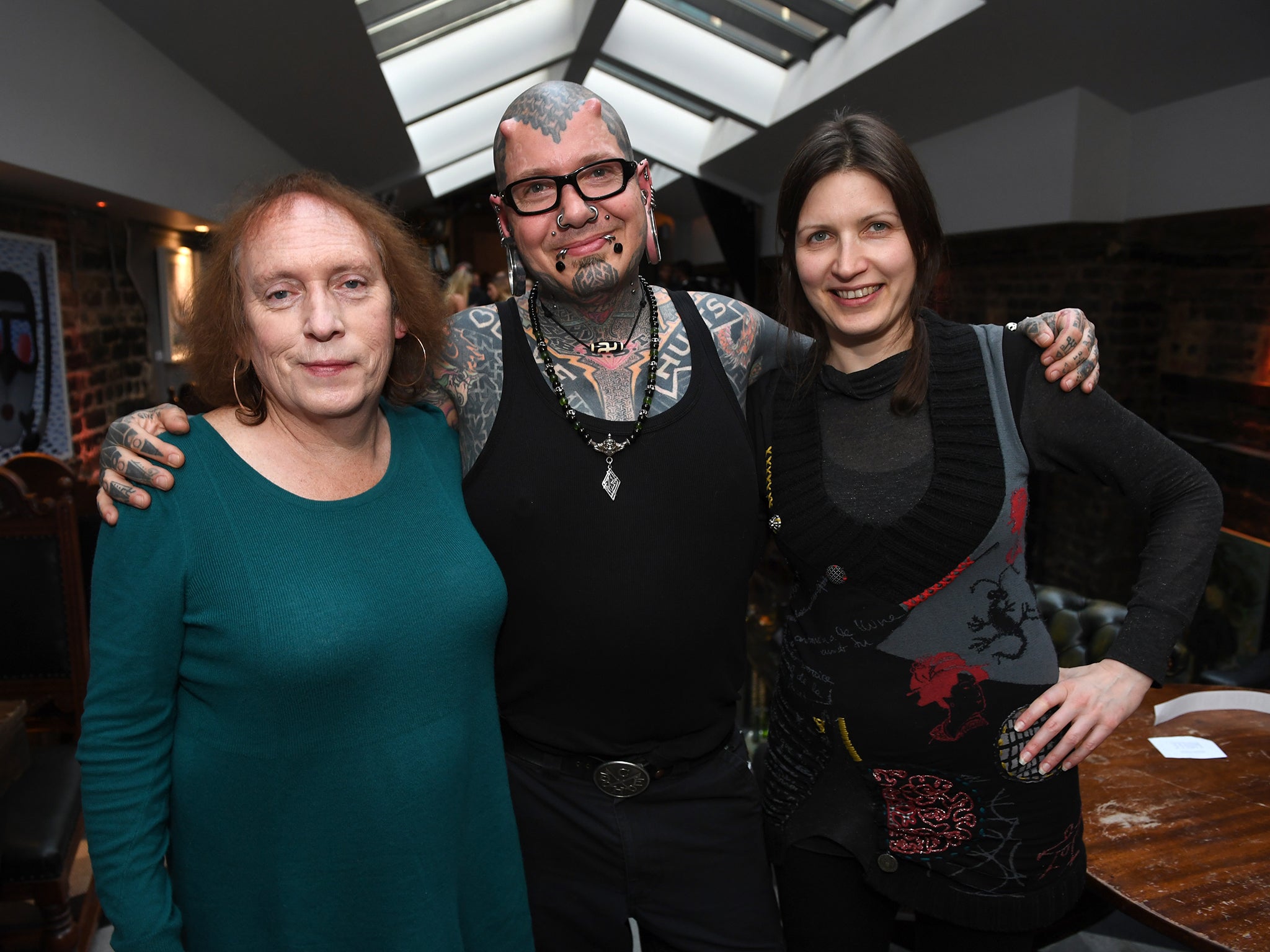The Human Library: where the 'books' tell their own stories
Every Wednesday, Alex Johnson delves into a unique collection of titles

Your support helps us to tell the story
From reproductive rights to climate change to Big Tech, The Independent is on the ground when the story is developing. Whether it's investigating the financials of Elon Musk's pro-Trump PAC or producing our latest documentary, 'The A Word', which shines a light on the American women fighting for reproductive rights, we know how important it is to parse out the facts from the messaging.
At such a critical moment in US history, we need reporters on the ground. Your donation allows us to keep sending journalists to speak to both sides of the story.
The Independent is trusted by Americans across the entire political spectrum. And unlike many other quality news outlets, we choose not to lock Americans out of our reporting and analysis with paywalls. We believe quality journalism should be available to everyone, paid for by those who can afford it.
Your support makes all the difference.Muslim
Refugee
Gay
Transgender
Dyslexic
Transsexual
Young offender
Post-traumatic stress disorder
Ex-offender
Lesbian
Young black male
Wheelchair user
Jewish
Christian
Down syndrome
Cerebral palsy
Recovering alcoholic
Teenage mother
Schizophrenia
Bi-polar
Ex-substance misuser
Unemployed
Autistic
Chav
HIV positive
Learning disability
Dyslexic
Borderline personality disorder
Bisexual
Homeless
Buddhist
Facial disfigurement
Have you had a chat with any really good books recently? One that really broadened your horizons? If not, then keep an eye out for your nearest Human Library.
While traditional libraries are still essentially repositories of books, there are many kinds of modern ones from which you can borrow other items, such as toys, bicycles, tools, seeds and telescopes.
At a Human Library event, the “books” are people with special experiences – “readers” can choose from various “titles” (this list is the Human Library UK’s suggestion of 40 from which a dozen or so would make a good stock), and then “borrow” them.
They then “read” the “book” by (respectfully) asking the person questions about their personal situation.
According to the Human Library UK: “The titles celebrate diversity and promote equality by deliberately acknowledging differences, lifestyles, ethnicities, faiths, disabilities, abilities and characteristics that may be stigmatised in the hope it might provoke an assumption or even prejudice in readers.

“By then giving readers the opportunity to borrow them for a safe and respectful conversation, the Human Library has the potential to challenge the prejudices, stereotypes and stigmas that can lead to discrimination.”
The first event was held in 2000 in Copenhagen and since then the Human Library Organisation, founded by Ronni Abergel, has become an international phenomenon with “libraries” in more than 70 countries.
Each human book is a volunteer and, as well as answering pertinent questions, has the option not to answer and also to ask their own questions. What they are not supposed to do is turn the conversation into storytelling or self-promotion.
Human Libraries use familiar terminology. At the main desk there is a list of “books” available and each reader is given a Human Library card by one of the librarians.
They then choose a “book” – sometimes with the help of an official matchmaker or library assistant – and are introduced by a member of the library staff (while waiting to be chosen, the books wait in a separate area called the bookshelf and frequently borrow each other on an ad hoc basis).
They then move to the reading room where there are numerous tables and chairs; this is where the conversation begins and lasts for up to half an hour.
As with all reading material, there are sometimes issues with the content. Plans for a Human Library event at Lenin Library in St Petersburg in 2016 were challenged when the host venue requested that four of the books scheduled to appear – the sex worker, the person without a child, the ex-prisoner and the homosexual – should be asked not to be present.
Human Library events are already held in schools, and a new pilot scheme is now being trialled in large companies along similar lines called “Borrow a Coworker”.
‘A Book of Book Lists’ by Alex Johnson, £7.99, British Library Publishing
Join our commenting forum
Join thought-provoking conversations, follow other Independent readers and see their replies
Comments